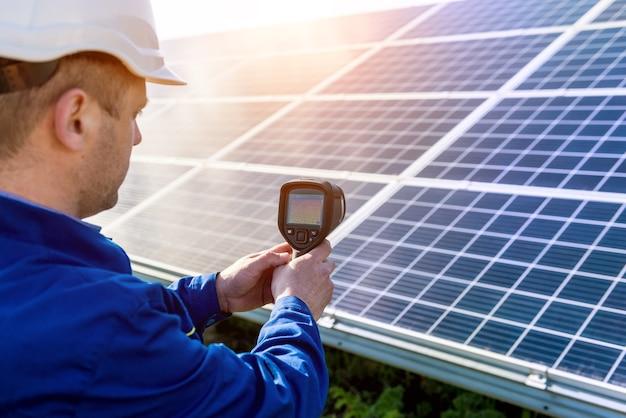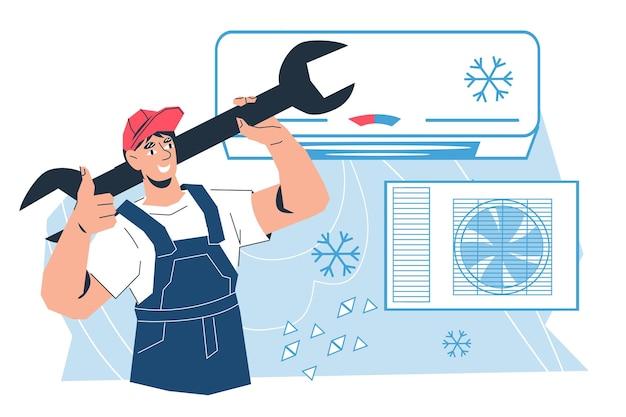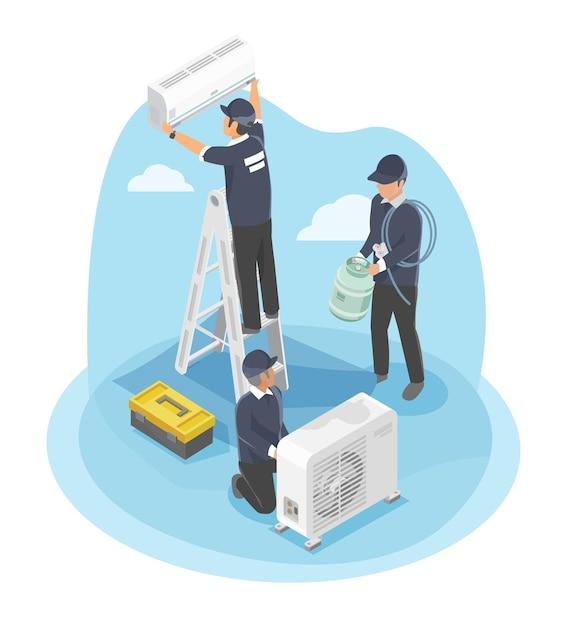Are you tired of dealing with frequent HVAC system breakdowns and costly repair bills? It may be time to consider implementing a preventative maintenance program for your HVAC system.
Regular maintenance can extend the lifespan of your HVAC system and improve its overall efficiency, leading to lower energy bills and reduced carbon emissions. But, what exactly is included in HVAC preventative maintenance, and is it worth the investment?
In this post, we’ll delve into the benefits of a preventative maintenance program, explore the components of a preventative maintenance checklist, and introduce HVAC preventive maintenance software that can streamline the process.
So, whether you’re a homeowner or a business owner, let’s explore how preventive maintenance can keep your HVAC system running smoothly and efficiently year-round.
HVAC Preventative Maintenance Program
A well-maintained HVAC system can last up to 15 years or even more. To keep it working at maximum efficiency, you need to have a preventive maintenance program in place.
Benefits of a Preventive Maintenance Program
- Cost Savings – Preventive maintenance can help you save a lot of money in the long run. It can detect small issues before they turn into major problems that can cost a lot of money to fix.
- Energy Efficiency – Maintaining your HVAC system can improve its energy efficiency, saving you money on utility bills.
- Longevity – A well-maintained HVAC system can last much longer than a poorly maintained one.
- Improved Air Quality – Regular maintenance can ensure that your HVAC system is working properly, improving your air quality and reducing the risk of respiratory-related health issues.
Components of a Preventive Maintenance Program
Your preventive maintenance program should include the following:
- Regular Inspections – A professional HVAC technician should inspect your system annually. They will inspect the ductwork, blower, motor, and all the other components of your system.
- Filter Replacement – Filters should be replaced monthly or quarterly to ensure maximum airflow and to prevent dust and dirt buildup.
- Cleaning – Your system should be cleaned regularly to ensure optimal performance. This includes cleaning the coils, fans, and other components.
- Testing – Your HVAC system should be tested regularly to ensure it is working properly. This includes testing the controls, refrigerant levels, and safety switches.
DIY Maintenance Tips
There are some simple tasks you can do yourself to ensure your system is working at peak performance:
- Keep the Area Around Your Unit Clean – Clean away debris and leaves from around the outdoor unit to ensure maximum airflow.
- Clear Blocked Vents – Ensure that furniture, drapes, and other items are not blocking any vents.
- Adjust the Thermostat – Adjust the thermostat to match your schedule to save energy and money.
A preventive maintenance program can save you money, improve the efficiency of your HVAC system, and prolong its lifespan. Consider implementing one today to reap the benefits.
HVAC Preventive Maintenance Software
HVAC preventive maintenance software is a powerful tool that enables HVAC professionals to streamline their maintenance processes. With this software, you can easily schedule maintenance tasks, track asset performance, and generate reports, all from a single platform. Here are the top benefits of using HVAC preventive maintenance software:
Simplified maintenance scheduling
With HVAC preventive maintenance software, scheduling maintenance tasks has never been easier. You can create a maintenance schedule based on the specific needs of your HVAC assets and set reminders for when maintenance tasks are due. This ensures that your HVAC system is always running at peak efficiency.
Enhanced asset performance tracking
HVAC preventive maintenance software allows you to track the performance of your HVAC assets over time. This data can help you identify potential issues before they become costly problems and take corrective action quickly.
Automated inventory management
HVAC preventive maintenance software also enables you to automate your inventory management processes, ensuring that you always have the parts and supplies you need to keep your HVAC system running smoothly. This feature helps prevent downtime and keeps your maintenance costs in check.
Real-time reporting
The software can generate real-time reports on the performance of your HVAC assets, the status of maintenance tasks, and the overall health of your system. This data is critical for making informed decisions about HVAC repairs, replacements, and upgrades.
Improved maintenance accuracy
HVAC preventive maintenance software also helps improve maintenance accuracy by providing detailed, step-by-step instructions for each maintenance task. This feature ensures that HVAC professionals know exactly what needs to be done and how to do it.
Overall, HVAC preventive maintenance software is an excellent investment for any HVAC professional looking to streamline their maintenance processes and keep their systems running at peak efficiency.
HVAC Preventative Maintenance Checklist
Regular HVAC maintenance can help extend the lifespan of your system and prevent expensive repairs. By following a preventative maintenance checklist, you can keep your HVAC system running smoothly all year round. Here is a comprehensive HVAC preventative maintenance checklist to help you get started:
Filter Maintenance
The air filter in your HVAC system is responsible for keeping dirt, dust, and other debris from building up in your system. Over time, these particles can clog your filter, reducing airflow and causing your system to work harder than necessary.
To avoid this issue, be sure to replace your air filter every three months at a minimum. In dusty environments, or if you have pets, you may need to replace your filter more frequently.
Coil Cleaning
The evaporator and condenser coils in your HVAC system can become dirty and clogged with debris over time. When this happens, your system will have trouble removing heat from your home, leading to higher energy bills and reduced comfort.
To ensure your coils remain free of buildup, schedule a professional coil cleaning once per year. In the meantime, keep an eye out for signs of buildup, such as reduced airflow or warm air blowing from your vents.
Electrical Maintenance
Your HVAC system relies on a network of electrical connections to function properly. Over time, these connections can become loose or corroded, leading to poor system performance or even safety hazards.
As part of your preventative maintenance routine, be sure to inspect all electrical connections and tighten any loose screws or wires. If you notice signs of corrosion, schedule an appointment with a professional HVAC technician.
Air Duct Cleaning
The air ducts in your home can accumulate dirt, dust, and other debris over time. As this buildup accumulates, it can reduce the efficiency of your HVAC system and lead to poor indoor air quality.
To keep your air ducts clean and free of buildup, schedule a professional air duct cleaning every few years. In the meantime, keep an eye out for signs of clogging, such as dusty or dirty air filters.
By following this comprehensive HVAC preventative maintenance checklist, you can ensure your system remains in top condition all year round. Remember to consult with a professional technician if you notice any signs of system trouble, and always stay on top of your maintenance schedule for the best results.
Is HVAC Preventive Maintenance Worth It
Having an HVAC preventive maintenance program in place can seem like an extra expense – something you don’t need to worry about until something goes wrong. But, is it really worth it?
Cost Savings
One of the most significant benefits of having an HVAC preventive maintenance program is cost savings. Regular maintenance catches small issues before they become significant, meaning you can avoid more costly repairs down the road. A well-maintained HVAC system also runs more efficiently, lowering energy bills and reducing your carbon footprint.
Increased Lifespan of Your HVAC System
Regular maintenance also helps to increase the lifespan of your HVAC system. As we mentioned above, taking care of small issues before they escalate into more significant problems will help your HVAC system last longer. You’ll be able to get the most out of your investment, without having to replace your HVAC system as frequently.
Better Air Quality
A well-maintained HVAC system also helps to improve air quality. Regular cleaning of your system will remove dirt, dust, and other debris that can pollute the air you breathe. Better air quality leads to healthier indoor environments for you and your family.
Peace of Mind
Finally, having an HVAC preventive maintenance program in place gives you peace of mind. You won’t have to worry about surprise breakdowns or HVAC failures because you’ll know your system is in good working order. This kind of peace of mind is invaluable – it allows you to focus on other things, without worrying about your HVAC system.
In conclusion, having an HVAC preventive maintenance program is definitely worth it. Not only will it help you save money and improve the lifespan of your system, but it will also improve air quality and give you peace of mind. So, if you don’t currently have a program in place, consider implementing one as soon as possible.
What is Included in HVAC Preventive Maintenance
Now that we have understood the importance of HVAC preventive maintenance for your home or business, let’s learn precisely what it includes. Here are some of the things that are included in an HVAC preventive maintenance program:
Inspection of Equipment
HVAC preventive maintenance programs include an in-depth inspection of every component of your HVAC unit. This includes checking the thermostat settings, cleaning or replacing the filters, lubricating the moving parts, tightening the electrical connections, and checking the condensate drain for clogs, among other things.
Routine Maintenance
After the inspection, the technician will carry out the necessary maintenance and repair work on the unit. They often replace the filters, clean the evaporator or condenser coils, and lubricate all the moving parts to ensure that your system is functioning as effectively and efficiently as possible.
Priority Repair
An HVAC preventive maintenance program will often give priority to repair work. It means that if there is an issue with your unit, it will be addressed immediately and fixed before it can cause any significant damage to your system.
Reduced Energy Costs
By ensuring your HVAC system is kept in good working order, it will operate more efficiently, and you will save money in energy costs. Your system will be using less energy, and in turn, you’ll notice a reduction in your utility bill.
Extended Lifespan of Equipment
Regular preventive maintenance can extend the lifespan of your HVAC unit significantly. By keeping your system in good working order, you’ll get more years of reliable and efficient performance from your system before needing to replace it.
In conclusion, HVAC preventive maintenance programs include regular inspection, maintenance, and priority repair work. By getting on a regular maintenance schedule, you’ll extend the lifespan of your equipment, reduce energy costs, and ensure your system operates efficiently. It’s an excellent investment for any homeowner or business owner concerned about the comfort of their indoor environment.



